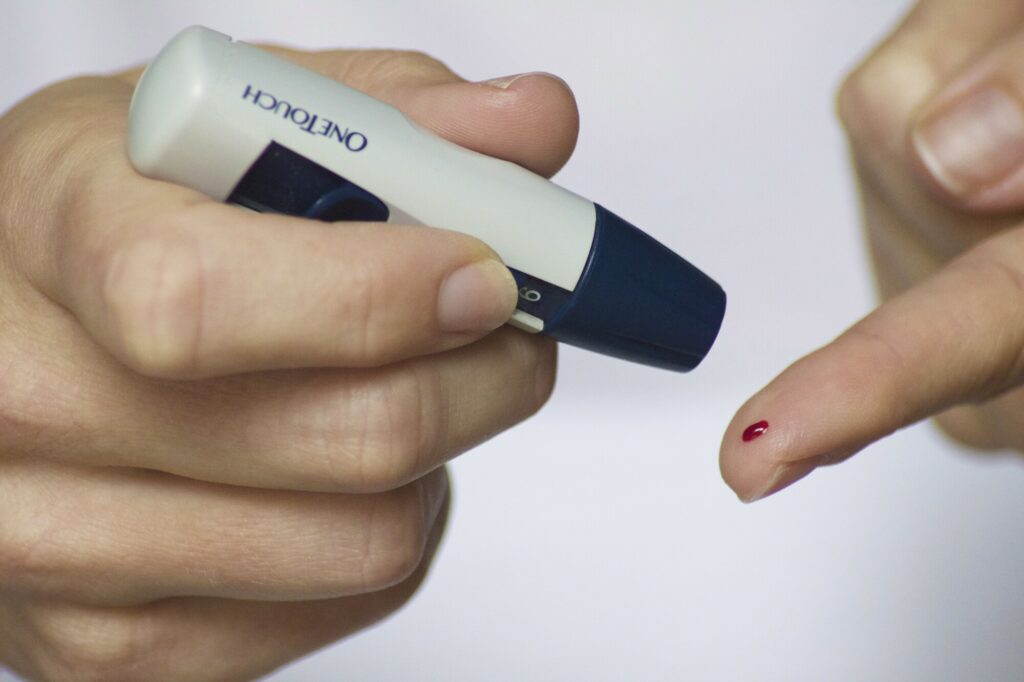Understanding the New Diabetes Guidelines
Category: Healthy Living
Author Scott
Posted on May 4, 2023
Scott is passionate about health and wellness, and enjoys writing on various topic surrounding these fields. Scott lives in Seattle and spends his free time restoring old furniture and playing pickleball with his friends.

On December 12, 2022, the American Diabetes Association released "Standards in Care in Diabetes - 2023'. This guide contains not only information on the prevention of diabetes but on the treatment and diagnosis of diabetes as well.
Wondering what the guide has to say? You're in the right place. Here's everything you need to know about the new diabetes guidelines.
Diagnosis of Diabetes
There is one recommendation included when it comes to the diagnosis of diabetes. This recommendation encourages point-of-care A1C testing as opposed to lab-drawn A1C testing.
The purpose of this is to get faster results. Point-of-care testing enables the physician to get results while the patient is still in their care. As such, they're able to discuss the next course of action immediately instead of at the next appointment.
Being able to do this might enable a pre-diabetic patient to take steps that would stave off type 2 diabetes. This early treatment could prevent a large number of pre-diabetics from becoming diabetic.
Treatment of Diabetes
There are numerous recommendations made in the realm of treating diabetes. Some of the primary recommendations include the following:
Establishing Team-based Care
While previous efforts have been made, in a general sense, diabetes care is still provided by physicians only. The 2023 Standards of Care guide recommends altering this by incorporating a more team-based form of care.
This includes the help of community health workers. These individuals can provide advocacy, outreach, education, and support to their communities. In doing so, they can help pre-diabetics and diabetics to better understand and manage their conditions better.
The guide also recommends the espousal of diabetes management through telehealth appointments and other such forms of technology.
Incorporating Psychosocial Care
The 2023 guidelines also place a priority on psychosocial care in the treatment of diabetes. This is because conditions like anxiety, depression, and disordered eating can all lead to situations that promote diabetes.
For instance, a mentally ill person might begin binge eating to self-treat their symptoms. This could result in glucose spikes and therefore diabetes.
To help combat this problem, the 2023 guide recommends more frequent screening for mental health issues. It also promotes greater access to mental health treatment.
Utilizing Medications to Treat Heart and Kidney Disease
Kidney and heart disease are extremely common in those suffering from diabetes. In fact, if you have diabetes, you're twice as likely to have cardiovascular disease than someone who does not suffer from diabetes. As such, the 2023 guide provides recommendations for treating kidney and heart disease.
In particular, the guide recommends prescription medication SGLT2 inhibitors. These not only help to treat kidney and heart disease but also reduce glucose levels.
Other medications recommended include GLP-1 receptor agonists and finerenone. Both medications have been shown to stop the progression of kidney disease. They're also shown to reduce instances of negative cardiovascular events.
Preventing Amputations Through an Increase in Peripheral Arterial Disease Screening
Peripheral arterial disease is a condition common in diabetics. This often leads to amputations. This, of course, drastically reduces a patient's quality of life.
This is why this year's guide recommends more frequent screening for the disease. By screening for the disease more often, physicians will detect it sooner. Thus, they'll be able to begin treatment sooner.
The sooner that treatment starts, the less risk there is of amputation occurring.
Prevention of Diabetes
There are many diabetes prevention recommendations made as well. These recommendations include:
Screening for Sleep Problems
Sleep problems, particularly sleep apnea and insomnia, are extremely common in those with type 2 diabetes. This is why the 2023 diabetes recommendations recommend more frequent sleep screenings for medical patients everywhere.
By catching these problems early, physicians are better able to treat them. This could prevent pre-diabetics from becoming diabetic. It could also prevent sleep conditions themselves from severely impacting a patient's life.
Screening for Non-alcoholic Fatty Liver Disease
Non-alcoholic fatty liver disease is becoming progressively more common in diabetics. Unfortunately, it's almost never screened for. This is why this year's guide recommends regular screening for the disease, particularly with the FIB-4 test.
Checking for Food Insecurity
The guide also places importance on the idea of food insecurity. This refers to a patient's inability to get their hands on healthy and balanced meals regularly. Food insecurity is most common in underserved areas.
In particular, the guide suggests screening for food insecurity by asking patients a series of related questions. In doing so, healthcare workers can identify areas where food insecurity is a problem. They can then work to fight insecurity in those areas.
Managing Weight
This year's guide also places a focus on weight management. It now considers weight maintenance and weight loss to be equally as important as glucose management.
This is based on evidence that the less a person weighs, the easier time their body has of managing glucose levels. Weight loss also reduces the risk of cardiovascular disease, a condition that's often comorbid with diabetes.
The guide also details how to manage weight. This includes partaking in lifestyle changes, engaging in weight-loss programs, undergoing metabolic surgery, and benefiting from the use of weight-loss medication.
Need Medication to Help Meet the New Diabetes Guidelines?
And there you have it, a review of the new diabetes guidelines. If you're suffering from diabetes, or if you're looking to prevent it as much as possible, these are the guidelines you need to follow in 2023.
Need diabetes medication as part of your diabetes treatment? If so, look no further than the Canadian pharmacist, Pricepro Pharmacy. Check out our full selection of diabetes medications right now!
https://diabetesjournals.org/care/issue/46/Supplement_1
https://www.pricepropharmacy.com/whats-the-best-weight-loss-medication/
https://www.pricepropharmacy.com/categories/diabetes/
https://www.cdc.gov/diabetes/library/features/diabetes-and-heart.html#:~:text=If%20you%20have%20diabetes%2C%20you,are%20to%20have%20heart%20disease.



